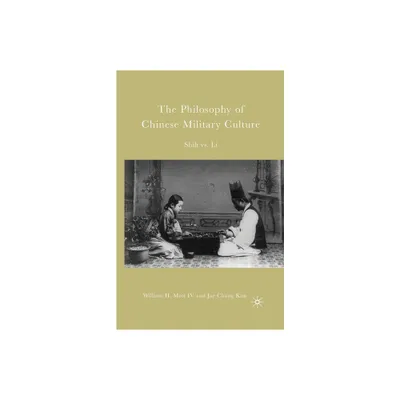Home
the Soul of Armies: Counterinsurgency Doctrine and Military Culture US UK
Loading Inventory...
Barnes and Noble
the Soul of Armies: Counterinsurgency Doctrine and Military Culture US UK
Current price: $130.00


Barnes and Noble
the Soul of Armies: Counterinsurgency Doctrine and Military Culture US UK
Current price: $130.00
Loading Inventory...
Size: Hardcover
*Product Information may vary - to confirm product availability, pricing, and additional information please contact Barnes and Noble
For both the United States and United Kingdom counterinsurgency was a serious component of security policy during the Cold War and, along with counterterrorism, has been the greatest security challenge after September 11, 2001. In
The Soul of Armies,
Austin Long compares and contrasts counterinsurgency operations during the Cold War and in recent years by three organizations: the US Army, the US Marine Corps, and the British Army.
Long argues that the formative experiences of these three organizations as they professionalized in the nineteenth century has produced distinctive organizational cultures that shape operations. Combining archival research on counterinsurgency campaigns in Vietnam and Kenya with the author’s personal experience as a civilian advisor to the military in Iraq and Afghanistan,
The Soul of Armies
demonstrates that the US Army has persistently conducted counterinsurgency operations in a very different way from either the US Marine Corps or the British Army. These differences in conduct have serious consequences, affecting the likelihood of success, the potential for civilian casualties and collateral damage, and the ability to effectively support host nation governments. Long concludes counterinsurgency operations are at best only a partial explanation for success or failure.
The Soul of Armies,
Austin Long compares and contrasts counterinsurgency operations during the Cold War and in recent years by three organizations: the US Army, the US Marine Corps, and the British Army.
Long argues that the formative experiences of these three organizations as they professionalized in the nineteenth century has produced distinctive organizational cultures that shape operations. Combining archival research on counterinsurgency campaigns in Vietnam and Kenya with the author’s personal experience as a civilian advisor to the military in Iraq and Afghanistan,
The Soul of Armies
demonstrates that the US Army has persistently conducted counterinsurgency operations in a very different way from either the US Marine Corps or the British Army. These differences in conduct have serious consequences, affecting the likelihood of success, the potential for civilian casualties and collateral damage, and the ability to effectively support host nation governments. Long concludes counterinsurgency operations are at best only a partial explanation for success or failure.


















